Soap making – tools & supplies
Geeta2023-04-30T16:36:51-04:00Hello Future Soap maker!
You are ready to embark on your soap-making journey if you are here. I called it a journey because you will never stop once you start making soaps.
So without too much talking let’s get you the tools and supplies you need to make your first batch of soap.
Most people have an amazon account, so I have added Affiliate links for Amazon. If you do use these links, I will get a small commission without affecting your cost. So I will appreciate you if you use these links.
Let’s start with the equipment & tools first-
- Kitchen scale – Everything is measured by weight in soapmaking, so you will need a kitchen scale.
- Hand blender – You need this to mix all the oils/butter & lye water to make the soap. If you have one at home, you can use it, but DO NOT use it again in your kitchen.
- Lye (Sodium Hydroxide) – Sodium hydroxide is used to convert oils into Soap. When I first started making soaps, this is the first lye that I used & it worked fantastically.
- Funnel pitchers – I suggest using #5 Polypropylene plastic in soapmaking, even though I hate plastic. The reason is that lye can react in different ways if you use stainless steel that is not high quality & Glass containers can break sometimes due to sudden temperature changes during the process. Personally, I never used stainless steel or glass but stainless steel is used by many soap makers when they make bulk batches. You DO NOT necessarily have to buy these funnel pitchers. You can find #5 plastic around the house. Some examples are- yogurt containers, Chinese food containers, etc. Just remember not to use them in the kitchen after using them to make soaps. Keep it for soap-making!
- Silicone spatulas – To mix everything together and to stir around the oils, lye water etc.
- Soap mold & Soap cutter – You will be pouring the soap batter into the mold & then once they are ready, you will use the soap cutter to cut your handmade cold process soap.
- Distilled water is easily available at your local grocery or pharmacy store.
- Oils & Butters of your choice – From local stores or Amazon according to your soap recipe.
If you are looking for a simple soap-making tutorial to start with, you can check out my YouTube video here to get familiar with the basic process of soap-making.
Please do proper research about the process before you attempt making soap yourself and make sure you wear safety gear during the whole process of soap making – Gloves, safety glasses etc. to protect yourself from lye solution and the soap batter.
If you want to skip the research and guesswork & start making soaps, I offer cold process soap-making classes. Please check out my website here to learn more about it.
To make this more valuable here is an easy beginner soap recipe for you-
Olive oil- 11.2 oz
Coconut oil- 4.8 oz
Distilled water- 5.12 oz
Lye (Sodium hydroxide) – 2.26 oz
Fragrance oil- Check your manufacturer’s usage guide.
Feel free to use it. This Coconut oil & Olive oil Soap recipe is perfect for beginner soap makers because it does not trace too fast and will give you enough time to learn the process of soap making.
I hope this is all helpful. I will see you around!
Signing off
Geeta from The Craft Space

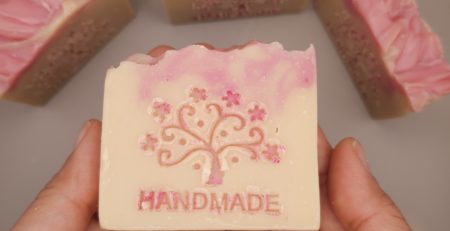
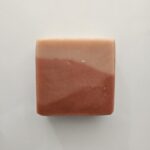
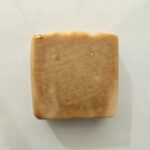
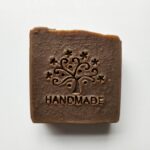
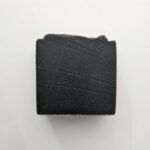
Leave a Reply